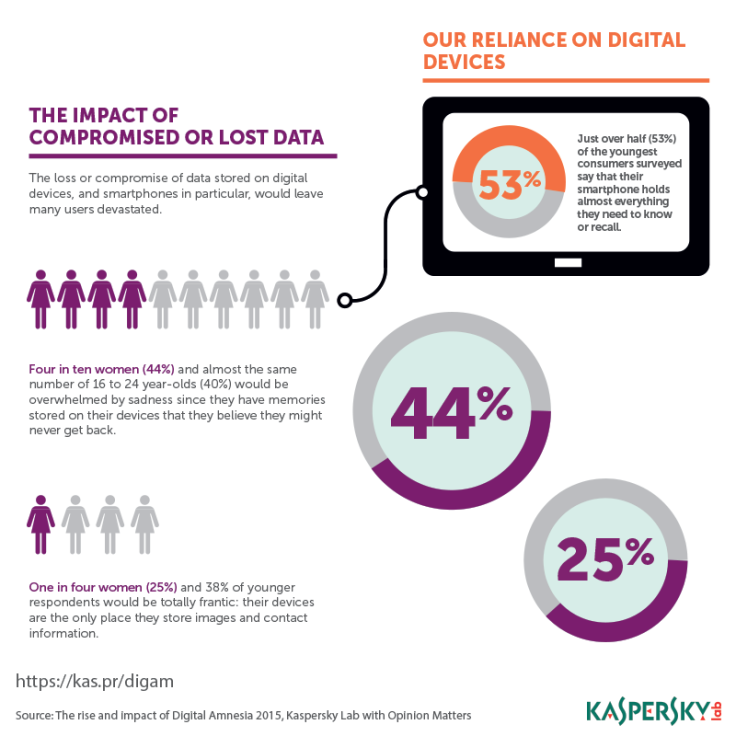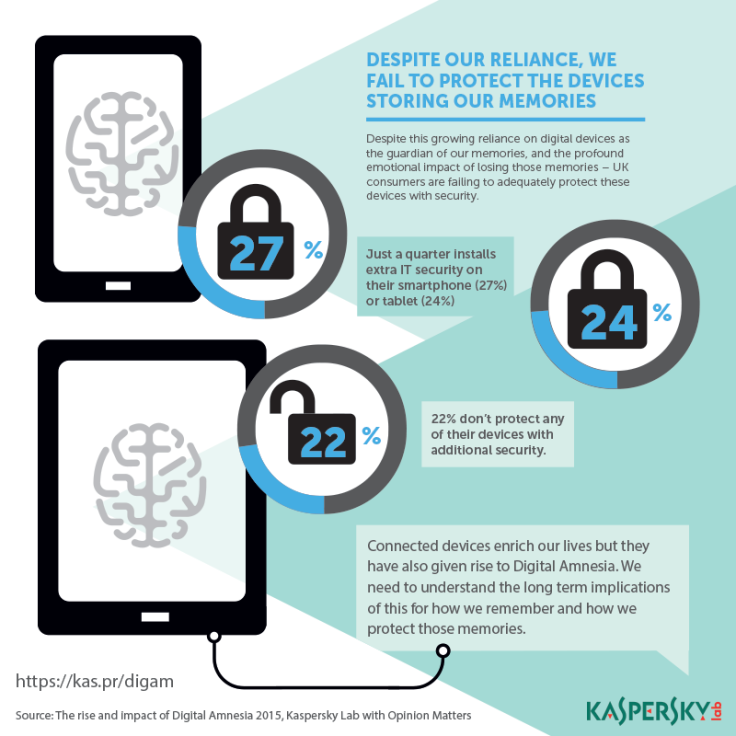Smartphones rot your brain and kill your memories, says latest research

An over-reliance on mobile devices and the internet has led to us using our brains far less than our ancestors, which greatly impacts our ability to create and store long-term memories, psychology experts and a security firm are warning.
Think about how many phone numbers you know today, and how many you used to know 15 years ago. If you grew up before mobile phones became mainstream, you probably knew your home phone number, those of a few of your closest friends, and probably the number to reach a family member at work.
You could probably also recite your home address off by heart, and you might still remember the address of your childhood home. But what about nowadays? Security firm Kaspersky Lab says too many people are handing over important information such as this over to their devices to remember instead.
36% of consumers use the internet rather than figure out the answer themselves
Kaspersky conducted an international study of 6,000 consumers aged 16 and older in six European countries and found 47% of all users cannot recall their home phone number from their childhood, 49% cannot recall their partner's phone number, 57% cannot remember their work number, and 71% cannot remember their children's phone numbers.
Even worse, when posed a question, 36% of all respondents preferred to immediately check the internet for the answer rather than try to come up with it by themselves; this figure rose to 40% among users aged 45 and over.
But once they had looked up the answer on the internet, 24% of all respondents admitted they would instantly forget the answer, and 12% assumed the information would always be available somewhere for them to access in the future.
Kaspersky referred the results of its research to experts from UCL Institute of Cognitive Neuroscience and the University of Birmingham. The psychologists confirmed that not bothering to memorise facts and information can be detrimental to our brains, which they called "Digital Amnesia".
"Our brain appears to strengthen a memory each time we recall it, and at the same time forget irrelevant memories that are distracting us. Past research has repeatedly demonstrated that actively recalling information is a very efficient way to create a permanent memory," said Dr Maria Wimber, a lecturer from University of Birmingham's School of Psychology.
"In contrast, passively repeating information [by repeatedly looking it up on the internet, for example] does not create a solid, lasting memory trace in the same way. Based on this research, it can be argued that the trend to look up information before even trying to recall it prevents the build-up of long-term memories."
How much will losing your device affect you?

The psychologists said it is OK for our brains to forget, as there is a limit to how much we can remember, and irrelevant information is routinely deleted so the brain can make room for new facts and memories. However, are we relying on our devices too much?
Kaspersky thinks so. The firm conducted the study in order to make the point that since we are relying so much on our mobile devices, we need to be making far more effort to secure these devices than we do today.
In the study, 53% of the youngest consumers said their smartphones held almost everything they would ever need to recall, but at the same time, 38% of the youngest respondents said they would be completely frantic if their data was lost or compromised by hackers.
One in four women would also be devastated, and 40% of 16 to 24 year olds, as well as four in 10 women would be overwhelmed with sadness if something happened to their devices, as they have memories stored on the devices that they might never get back.
"With connected devices being an integral part of our everyday lives, Kaspersky Lab is calling for all consumers to ensure these are sufficiently protected from online security risks before it's too late," Kaspersky told IBTimes UK. "Without putting the right measures in place now, our impatience for knowledge at the click of a button could lead to loss of important information or special memories."

© Copyright IBTimes 2025. All rights reserved.






















